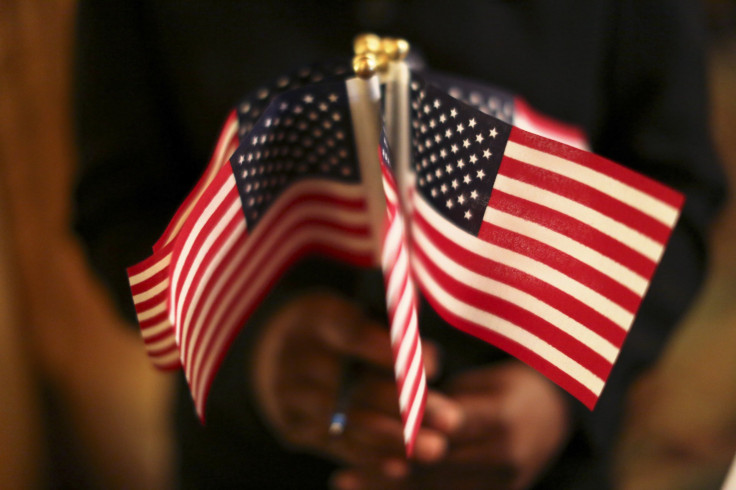Flag Day 2015 USA: 10 Facts To Know About The Star-Spangled Banner

Sunday is Flag Day, an annual observance of the Second Continental Congress' official adoption of the stars and stripes in 1777. At the time, they "resolved that the flag of the 13 United States" be represented by 13 alternating red and white stripes and the union by 13 white stars in a blue field, "representing a new constellation.” Now, more than 200 years later and with an updated design, the flag is an American icon.
Flag Day, though not a federal holiday, is full of tradition. The holiday was established in 1916 by President Woodrow Wilson, and in 1949 Congress declared June 14 a national holiday. Pennsylvania is the only state that observes Flag Day as a state holiday, according to the History Channel. But others host parades and parties in the flag's honor -- just as Wilson intended.
"Let us on that day rededicate ourselves to the nation," he wrote in his proclamation, " 'one and inseparable' from which every thought that is not worthy of our fathers' first vows in independence, liberty, and right shall be excluded and in which we shall stand with united hearts, for an America which no man can corrupt, no influence draw away from its ideals, no force divide against itself -- a nation signally distinguished among all the nations of mankind for its clear, individual conception alike of its duties and its privileges, its obligations and its rights."
Here are other facts about Flag Day:
- Bernard J. Cigrand is considered the father of Flag Day. In 1885, as a young teacher at a high school in Waubeka, Wisconsin, Cigrand put a small flag on his desk and told his students to write essays about it. He fought for the rest of his life to formally establish the holiday, according to the National Flag Day Foundation.
- The flag has been changed 27 times. The final star, for Hawaii, was added in 1960.
- The first time the flag was flown after being adopted was on Aug. 3, 1777 in Rome, New York.
- The flag's colors have become significant over time. The white is for purity, the red is for valor and the blue is for justice, according to usflag.org.
- President George Washington described the design like this: "We take the stars from heaven, the red from our mother country, separating it by white stripes, thus showing that we have separated from her, and the white stripes shall go down to posterity representing liberty."
- The first flag was probably created by Francis Hopkinson, who signed the Declaration of Independence. He requested "a quarter cask of the public wine" as payment for his design. He was rejected.
- Betsy Ross sewed the first American flag according to a pattern, which was likely Hopkinson's. Legend has it she changed the six-point stars he'd drawn to five-point ones because they were easier to stitch.
- Sea captain William Driver gave the flag its "Old Glory" nickname in 1831, according to usacitylink.com.
- The current design of the U.S. flag was created by Robert G. Heft, who made the pattern for a high school project. He earned a B- at first, but when the government chose it, his teacher raised the grade to an A.
- There are six American flags on the moon. Five are standing, but Neil Armstrong's fell over.
© Copyright IBTimes 2024. All rights reserved.






















